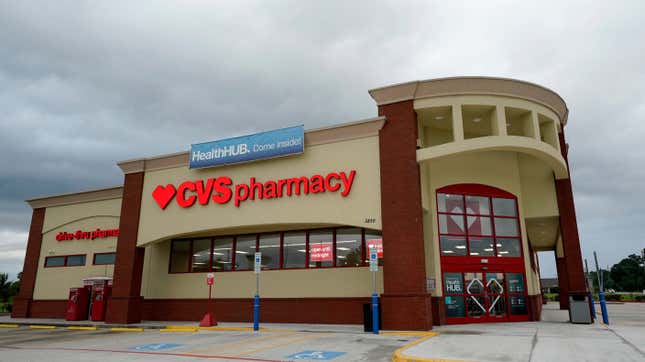CVS Might Make It Even More Difficult to Get Birth Control
Latest

On August 15, a prescription birth control delivery service called Pill Club alleged that CVS is lowballing mail-order drug companies to the point where Pill Club and others may have to stop serving patients with CVS Caremark pharmacy benefits.
Vice reports that Pill Club is one of a few different companies that allow users to gain access to birth control prescription online without an expensive doctor’s visit and then delivers the medication right to their door. This system enables many without insurance to gain access to affordable birth control. The problem, according to Pill Club, is CVS’s pharmacy benefits manager (PBM), called CVS Caremark, which provides a lot of seemingly unnecessary barriers between human beings and medicine because money:
“CVS Caremark is a pharmacy benefits manager (PBM), which is a third-party company that manages prescription drug benefits on behalf of insurers. Theoretically, PBMs keep costs down by negotiating rates with drug companies and pharmacies. However, they are controversial: PBMs receive rebates from drug manufacturers that are usually calculated as a percentage of the drug’s list price, meaning they have reason to favor higher-priced drugs over more affordable ones. Drug companies, in turn, argue that paying rebates has forced them to raise the list prices of drugs. CVS Caremark is one of three large PBMs that together account for more than 70 percent of U.S. pharmacy claims.”
The problem comes from the fact that CVS isn’t reimbursing startups at a rate that allows them to distribute medication and remain competitively priced. A representative for another birth control delivery service, Pandia Health, explained that the cost for smaller companies to buy medications is significantly higher than the cost to large PBMS, but the reimbursement rates remain low:
“A PBM’s mail order or partner pharmacy buys hundreds of thousands of packs of birth control, so they can get it for $4. The small, independent, or new startup pharmacy only buys hundreds of packs, so gets it for $8. Then there’s overhead, cost of labor, shipping, et cetera. So, the PBM reimburses at its price of $4, and the small, local, independent, or startup pharmacy loses at least $4 [on every pack].”
According to Pill Club, 55 percent of its users say they would have to stop taking birth control without access to the service, and a rep for the company says “tens of thousands” will be affected if CVS declines to negotiate its contracts with mail-order birth control startups. On Thursday, hashtags like #CVSDeniesCare and #BoycottCVS were circulated on Twitter, which doesn’t sound like a bad idea, since the ACLU also got into the discussion, reminding us that CVS has no policy in place to prevent pharmacists from denying hormones to transgender customers. And earlier in August, the Fresno Bee published this absolutely horrific story about CVS Caremark denying cancer treatment so long the corporation nearly a killed a woman.